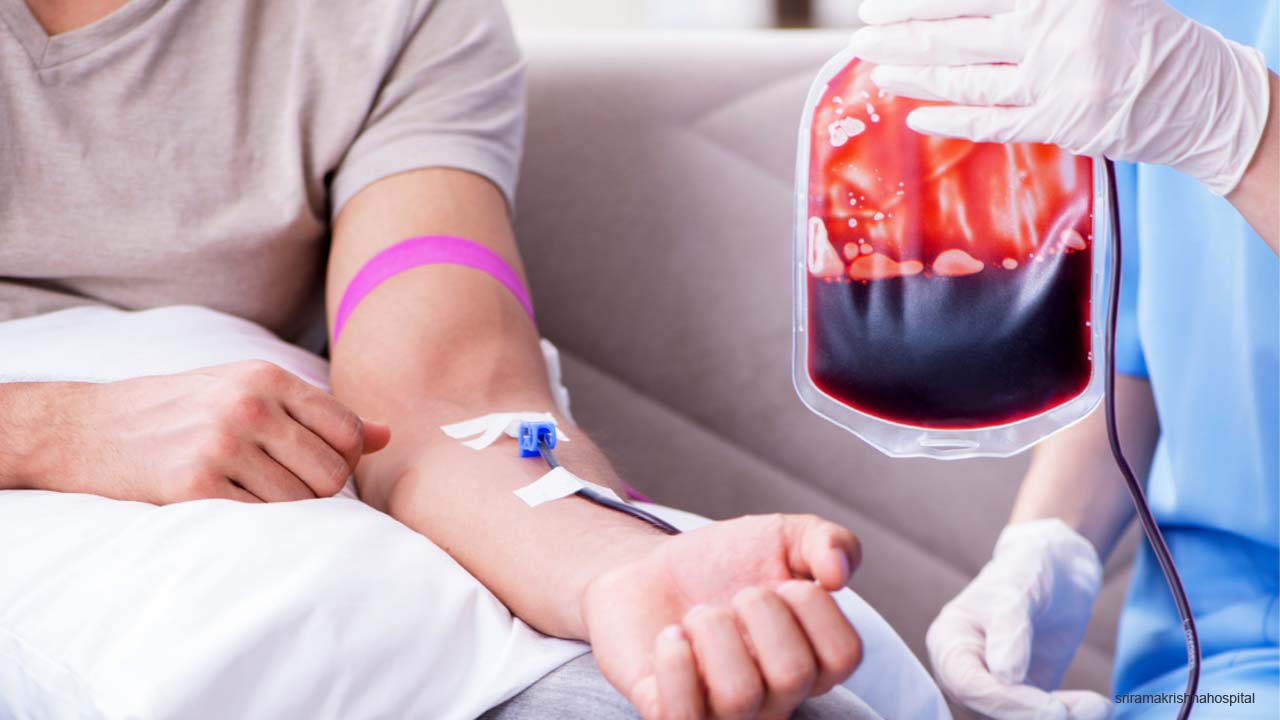Blood transfusion saves millions of lives every year. In fact, one blood donation has the potential to save as many as three lives. Apart from blood loss due to an injury or surgery, there are certain medical conditions that require blood transfusion which include Anemia, Haemophilia, Sickle cell anemia, Thalassemia, etc.
Blood transfusion is a process of transfusing donated blood to patients who have lost blood or lack blood due to an injury, surgery, or any medical condition. Every year, there are more than 118 million blood donations worldwide. In low-income countries, up to 54% of blood transfusions are given to children under 5 years of age. In high-income countries, the most frequently transfused group is over 65 years of age.
But in all this safety of blood is also ensured and blood banks and healthcare providers look after the responsibility. They really work hard to guarantee its safety. All donated blood products are screened for HIV, hepatitis B, hepatitis C, and syphilis before transfusion. They can ask questions regarding your health, behavior, and travel history. Donated platelets should be used within five days and red blood cells must be used within 42 days from the date of collection. Blood products like plasma and cryoprecipitate are stored in a frozen state and thereby can be used for up to one year after collection.
Even after taking a lot of precautions, blood transfusions can land up to certain odds but it’s very rare, very very rare for example HIV, hepatitis C, hepatitis B, and bacterial infections. The donated blood or blood components are stored in special medical bags until they are out for use. The doctor connects the needle that is inserted into the patient’s veins to the bag of blood through the tubing. Thus, blood goes into the patient’s circulatory system.
Importance of a safe blood supply
- It can be highly useful for women with pregnancy, childbirth-related bleeding
- It can be of great importance to patients with blood and bone marrow disorder
- Aid people with traumatic injuries, accidents, or disasters.
- Supports patients with advanced medical and surgical procedures
Blood components
Different blood components are
- Plasma and cryoprecipitate – They help to prevent or control bleeding
- Platelets – Prevent or control bleeding
- Red blood cells – We all know that oxygen is very important for us. Red blood cells carry this oxygen from the heart to different parts of the body.
What to expect after a blood transfusion?
Generally, people don’t face any reactions but in case reactions occur, they may include breathing troubles, fever, chills, and hemolytic transfusion reactions. If you experience any of these symptoms, inform your healthcare provider. Immediately contact the doctor if you get to see these symptoms after a blood transfusion
- Fast heartbeat, chest pain, or trouble breathing
- Bleeding
- Fever or chills
- Headaches, dizziness, nausea, and vomiting
- Rashes, itching
- Severe back pain
Donating blood is an easy and safe process. According to the World Health Organization (WHO), India suffers from an annual deficit of 2 million blood units, as only 1% of the Indian population donates blood each year. If you are a potential donor, please donate your blood for a noble cause of saving a life. Be a part of the bigger picture.

 India suffers from an annual deficit of 2 million blood units, as only 1% of the Indian population donates blood each year. One blood donation has the potential to save as many as three lives. Donate blood to save a life and be a part of the bigger picture.
India suffers from an annual deficit of 2 million blood units, as only 1% of the Indian population donates blood each year. One blood donation has the potential to save as many as three lives. Donate blood to save a life and be a part of the bigger picture.








.jpg)


.jpeg)

.jpg)






.jpeg)



.jpg)






.jpg)


